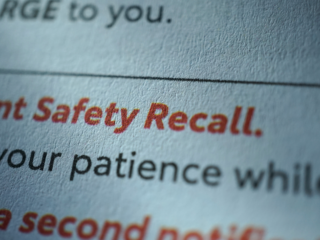Released August 31, 2016 | Full Decision [CanLII]
Ladies and Gentlemen, start your engines….and your Statement of Claims. This recent summary judgement dismissal suggests that an insurer’s delay in paying a benefit will trigger the commencement of the limitation clock, even where there has not been a “clear and unequivocal denial” of the disability claim.
The limitation period for disability benefits does not require a clear and unequivocal denial according to Justice Bale in his fact-specific decision on Summary Judgment motion.
Facts:
Mr. Richards was injured in a motor vehicle accident on November 17, 2006. He had both Short and Long Term Disability insurance through Sun Life in addition to the Statutory Accident Benefits available to him arising from the accident.
Sun Life delayed payment of STD benefits from November 2006 until the Spring of 2007 (a fact omitted from the Endorsement). Sun Life then paid Mr. Richards his STD benefits retroactively for the period from November 19, 2006 to January 29, 2007, and requested further information from him.
On May 1, 2007, Sun Life sent Mr. Richards 2 letters. The first advised that it had not received the information requested of him on April 10, 2007 and that his file had been closed effective January 29, 2007. The second letter from the same date advised that Sun Life had received Mr. Richards’ LTD form but required another form unless he had already provided it. Mr. Richards’ Affidavit indicated that he believed that he had provided all information that was requested from his insurer. He was not cross-examined on his Affidavit in support of the motion.
Mr. Richards did not seek to internally appeal his “file closure” with Sun Life, but swore in his Affidavit that he did not believe that the closure of his file meant that his claims were denied or that his file could not be re-opened. In fact, Sun Life had actually re-opened his closed file previously in the same claim.
Mr. Richards commenced an action against Sun Life for the failure to pay his STD or LTD benefits on October 30, 2012.
Sun Life brought a motion for Summary Judgment against Mr. Richards on the basis that the claim was statute-barred. Sun Life took the position that the limitation clock had started on May 1, 2007 as a result of its first letter from that date.
Decision:
The Court rejected Sun Life’s argument that the limitation period had expired 2 years after its May 1, 2007 denial letter because it did not find that Sun Life had been clear and unequivocal in its denial of Mr. Richards’ STD claim. Nor did it find that there had been any denial of Mr. Richards’ LTD claim which did not require exhaustion of STD payments in order to receive LTD benefits.
Instead, Justice Bale concluded that Sun Life was not required to be clear and unequivocal in its denial of Mr. Richards’ disability claims before the limitation clock would start to run (para 15). He found that, although some cases require a clear and unequivocal denial to determine the commencement of a limitation period, “it does not follow that ‘clear and equivocal denial’ is the only basis” upon which the limitation clock can be started.
Justice Bale’s analysis of the law in support of this conclusion focused on only 2 cases. Kassburg v. Sun Life 2014 ONCA 922, which he distinguished on its facts, and the short endorsement in Thompson v. Sun Life Assurance Co. of Canada 2015 ONCA 162. Of note, in Thompson it was found that Ms. Thompson had actual knowledge of her cause of action and no argument was advanced in relation to the issue of “clear and unequivocal denial”. None of the other cases referred to during the Richards motion appear to have been considered by Justice Bale in his decision.
Justice Bale did not explain why first party insureds were not entitled to be informed clearly that their benefits were being denied before they are deemed to have “discovered” their claim within the meaning of section 5 of the Limitations Act, 2002. Instead, Justice Bale reviewed section 5(1) of the Limitations Act, 2002 and concluded that Mr. Richards ought to have known that he had been denied benefits at some unspecified time prior to October 30, 2010. This was notwithstanding Justice Bale’s rejection of the moving party’s position that the denial had been clearly and unequivocally communicated on May 1, 2007.
The Court focused on the insured’s inability to point to another event that would have triggered the commencement of his limitation clock. Justice Bale found at paragraph 21 that “it may be that [the insured] was confused in 2007 and 2008 and expected that his benefits would eventually be paid. However, at some point before October 10, 2010, he must have, or should have known that he was being denied benefits to which he believed himself to be entitled”.
In arriving at this conclusion, Justice Bale did not discuss the insured’s uncontroverted evidence that he was confused by Sun Life’s claim to a set off from his Accident Benefits payable for Income Replacement Benefits. Nor did Justice Bale provide any guidance to explain what would trigger the commencement of a limitation period in a disability claim where no clear and unequivocal denial had ever been provided by the first party insurer.
Justice Bale found that the insured believed that Sun Life had everything that it had requested and that it was delaying payment. From that finding, it was concluded that the insured knew that he was not getting the benefits to which he believed himself to be entitled as is required under section 5(1)(a)(i) of the Limitations Act, 2002.
The Limitations Act, 2002 also requires that the Plaintiff have knowledge that a proceeding would be an appropriate means to seek to remedy the cause of action discovered under subsections 5(1)(a)(i) to (iii). Justice Bale found that this requirement was satisfied, notwithstanding the confusion created by the insurer’s unclear and misleading denial, in part because Mr. Richards had retained counsel to represent him in a third party action against the party responsible for the motor vehicle collision.
It appears that the delay in paying the disability benefit, coupled with the fact that Mr. Richards had retained counsel to commence an unrelated action (not to represent him in the disability claim) is sufficient to trigger the running of the limitation clock. Unfortunately, this endorsement provides no explanation for when an insured should be deemed to have known that he should sue his own insurer where benefits are not immediately paid.
Conclusion/Application:
It is unclear whether this endorsement contains sufficiently persuasive reasoning to be followed in future cases of a similar level. The Plaintiffs bar should be aware of this case, however, for the proposition that a “clear and unequivocal denial” is not needed to trigger the commencement of the limitation clock in the first party insurance context. The passage of time alone, even where the insured has been confused by an unclear denial, can be enough to bar proceedings based on a limitation defence.
Time is of the essence when initiating a claim for unpaid disability benefits regardless of whether there is a denial of the claim. This case suggests that the previous line of cases requiring a claim to be denied before an insured is required to commence a claim is questioned as the status of the law. Notably, this decision was made without reference to the relationship of the first party insurer to its insured.
This case was settled without an appeal of the motion judge’s disposition. Unfortunately this leaves us without appellate level guidance as to its correctness and without explanation of what event now starts that limitation clock.
Read the decision on CanLII













